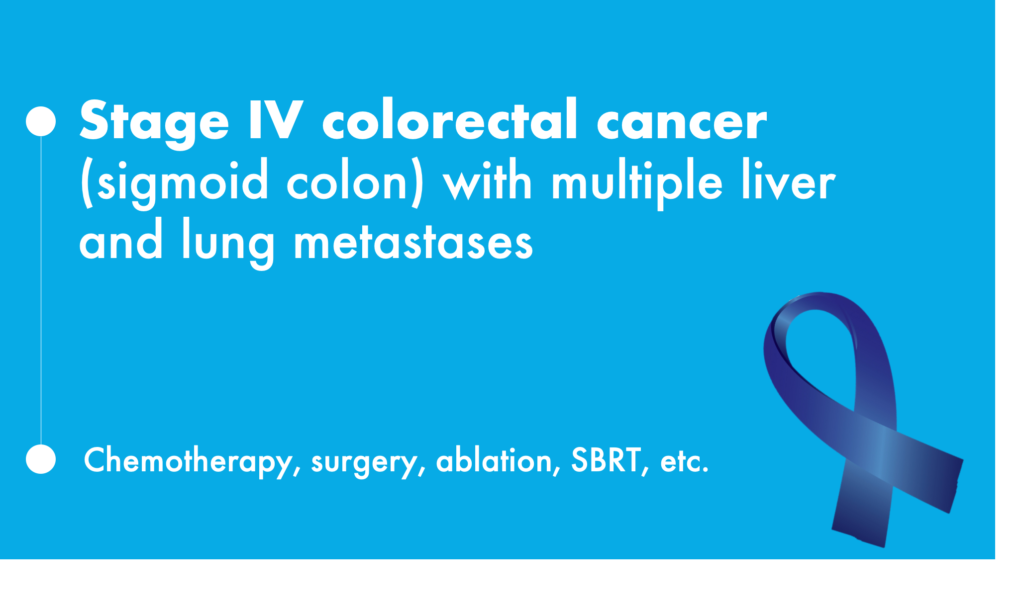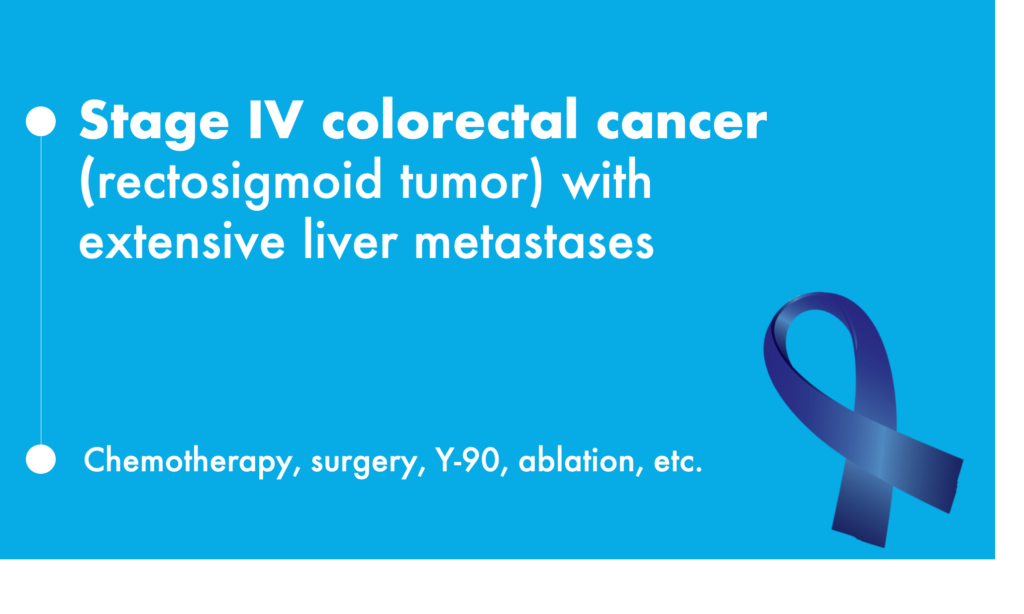Journey of Resilience
Triumph Over Rare Rectal Squamous Cell Carcinoma: Achieving NED Status Through Multidisciplinary Care
How Advanced Immunotherapy, Chemotherapy, and Radiotherapy United for a 54-Year-Old Patient
A 54-year-old woman presented with intermittent stool bleeding and was found to have a protruding rectal mass located 5–10 cm from the anus. Biopsy confirmed squamous cell carcinoma (SCC), with immunohistochemistry revealing high levels of PD-L1 (CPS:60/50) and no KRAS, NRAS, or BRAF mutations. Imaging, including PET/CT and MRI, indicated carcinoma invasion into the posterior wall of the uterus and multiple lymph node involvements.
Due to the absence of established protocols for rectal squamous cell carcinoma (RSCC), the initial plan emphasized immunotherapy, particularly given the high PD-L1 expression. After two cycles of pembrolizumab, the tumor remained stable with minimal symptom relief. A multidisciplinary team (MDT)—including oncologists, radiotherapy specialists, and pathologists—then adjusted the treatment to combine pembrolizumab with mFOLFOX6 (fluorouracil, leucovorin, and oxaliplatin). Mild side effects were observed, and most abnormal lymph nodes disappeared, although one para-aortic lymph node persisted.
At the second MDT, local treatment was recommended to target the primary lesion and residual lymph node. The patient declined surgery, opting instead for pelvic IMRT and SBRT to abdominal lymph nodes. This led to a partial response, with symptoms like bleeding and tenesmus disappearing.
A third MDT further refined therapy, replacing mFOLFOX6 with PC (albumin-binding paclitaxel and nedaplatin) alongside pembrolizumab. Over six cycles, the patient experienced mild neuropathy but no significant organ toxicity. Follow-up imaging and endoscopic examinations revealed that the rectal mass had vanished, with only scar changes visible. PET/CT confirmed no abnormal uptake in previously involved sites. Regular follow-ups for 12 months confirmed no recurrence, leading to a declaration of NED.
Diagnosis
Rectal squamous cell carcinoma confirmed by biopsy and imaging
Biomarker profile: High PD-L1 expression
Treatment
Combination of immunotherapy (pembrolizumab), varying chemotherapy regimens (mFOLFOX6, then PC), and targeted radiotherapy (pelvic IMRT and SBRT)
Outcome
NED achieved, with all suspicious lesions resolved and no recurrences detected at follow-up
Source: Qu, F., Xiao, L., Xiao, Y., Gao, C., Wang, X., Wang, Y., … & Liu, M. (2023). Case Report: Intervention of radiotherapy improves the prognosis of rectal squamous cell carcinoma with high PD-L1 expression and enable patients to obtain NED status. Frontiers in Immunology, 14, 1235697.


